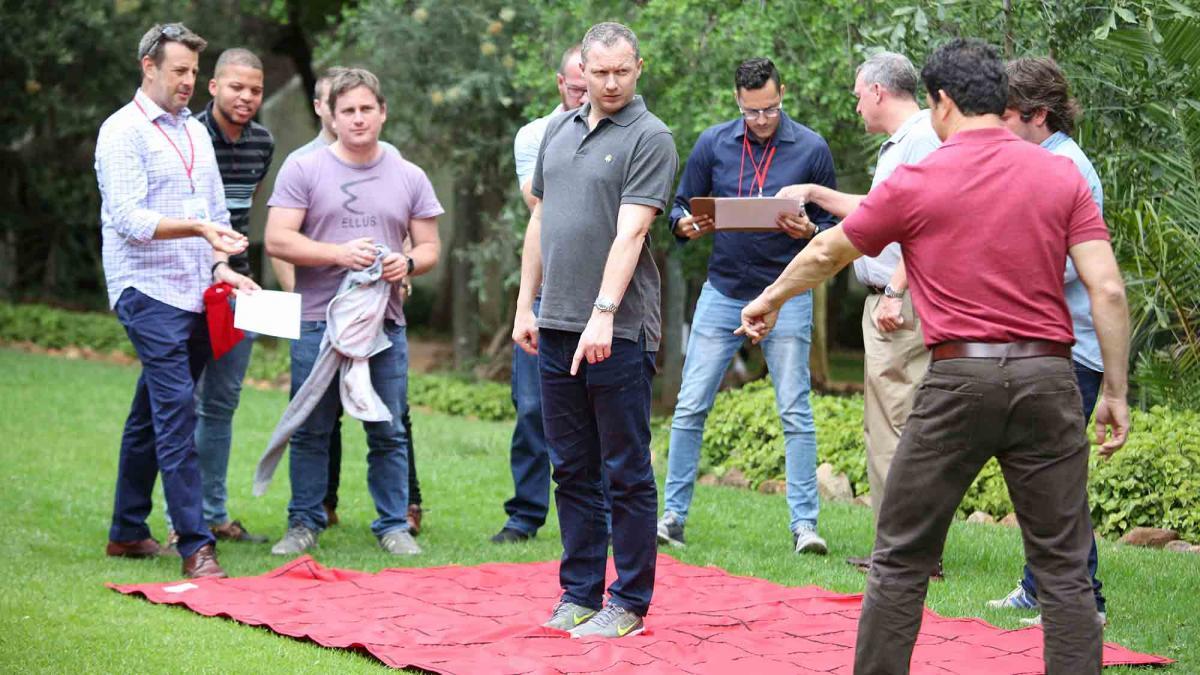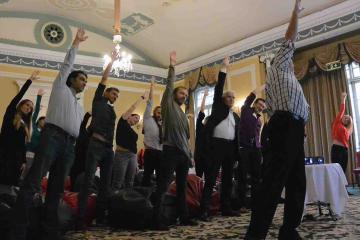Collaboration and Cooperation are two terms that sometimes seem interchangeable; however, they do have slightly different meanings. From a general perspective, the contexts in which the two words are used allows for them to be swapped without issue but when it comes to team building, this is not the case.
At Catalyst Team Building UK, we design each of our team building activities with specific goals in mind. To get the most out of a team building event, organisers should come into it with a target learning outcome, selecting activities and games that develop specific skills which will benefit the team.
Collaboration and cooperation have overlapping learning outcomes but fundamentally, a few of their potential benefits do vary and differ. In this guide, we have put together a brief overview of the two words covering their meanings, their importance in team building as well as their benefits and how they can help you. Use this as a resource to make the best decision when organising your own team building event.
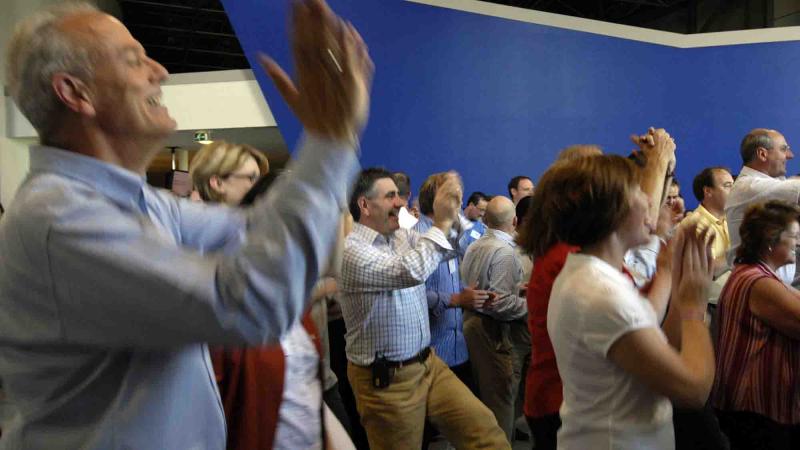
What is Collaboration?
Collaboration centres around multiple individuals or groups working together to achieve a common goal. In the workplace, collaboration could come in the form of multiple different departments uniting to complete a single, large task. Alternatively, it could involve different members of the team brainstorming ideas to solve a company-wide issue, then implementing the solution as a group. At a base level, collaboration is about a simultaneous, coordinated approach to problem-solving where everyone simultaneously takes responsibility for the issue and helps to address it.
Collaboration often occurs at work and is almost always necessary for smooth business operations, though it can be challenging because it involves relying on others to fulfil their role do their part. This is why collaboration features so heavily in corporate team building; it offers a fun and engaging space to practice what is actually quite a difficult skill.
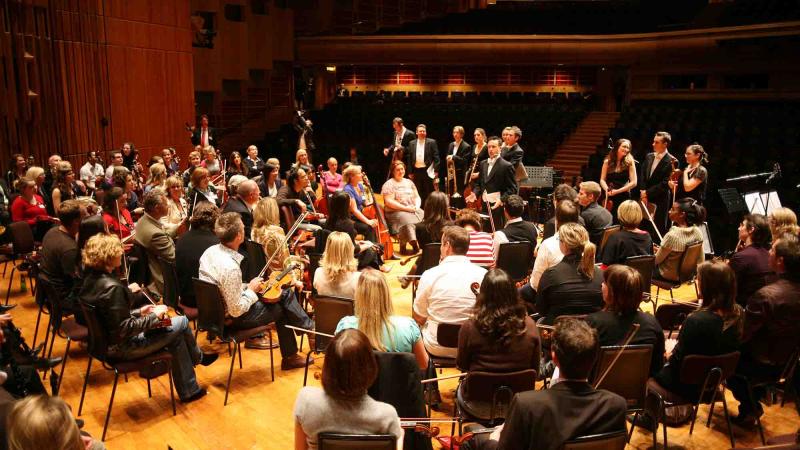
How Does it Work in Team Activities and What Are the Benefits?
In team activities, collaboration is extremely common. In fact, almost all events have some collaborative element, even if it isn’t obvious. A very clear example of collaboration is Orchestrate!, which involves each member of the team learning how to play an instrument in only 90 minutes, then coming together to play a piece as a group. Orchestrate! demands that each member of the team tackles the problem with the same passion, with the end goal of performing a single orchestral piece as a group. Each member of the team must rely on the other individuals to play their part and only with everyone’s group effort will the performance be successful. This epitomises what collaboration is all about.
Training and improving a team’s collaborative ability is incredibly beneficial from a business perspective. At its core, collaboration revolves around working in unison; adapting and flowing around each other to remain consistently effective, whilst simultaneously entrusting part of the end goal to friends and colleagues.
The ability to identify the skills of your colleagues and then trust that they will succeed in their part of the deal is not only difficult, it’s also nerve-wracking. Practising how to collaborate is the only way to truly develop the skill and in a much more enjoyable scenario like a team building event, the lessons learnt are more likely to stick and then be translated into the workplace.
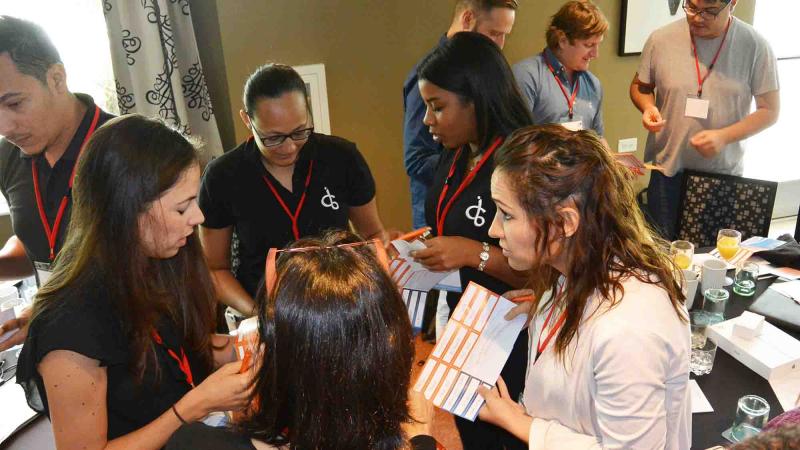
What is Cooperation?
On the other hand, cooperation is not necessarily driven by a single united goal. Instead, cooperation is when multiple individuals or groups, each with their own agenda and personal goals, work together in a mutually beneficial relationship. Furthermore, instead of each group or individual working in unison, each participant plays a different role and has a different responsibility, supplying the overarching group with a specific service.
In short, cooperation is not inherently altruistic. It’s about working together but for yourself, whilst collaboration is about working together because everyone wants to achieve the same end goal. Saying this, it doesn’t mean that everyone involved is selfish. You may be solving a puzzle and require someone else’s information to solve that puzzle; this is still cooperation, it just happens to be that you want to solve a puzzle whilst the other individual or group wants to achieve something different.
In the workplace, cooperation can occur between organisations for research purposes, between agencies and organisations or even between team members in very specific industries. The ability to recognise a good deal, then negotiate it efficiently and get as much from the mutually beneficial relationship as possible is difficult but undoubtedly invaluable. This is what makes cooperation-based team building activities so useful.
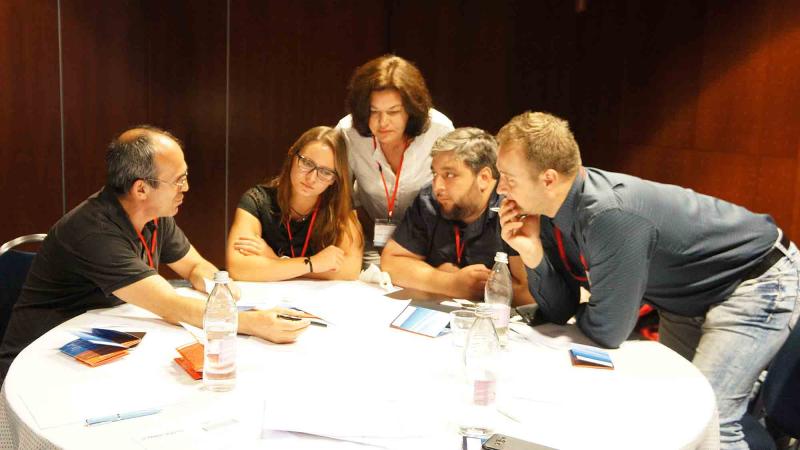
How Does it Work in Team Activities and What Are the Benefits?
Cooperation is slightly less commonly seen in team activities but is far from non-existent. Events like Knowing Me Knowing You – Work Styles ask each participant to share information with others to collect more information for themselves, competing to find as many matches to their own work style as possible. This defines cooperation, where each individual is working together, yet seeks to achieve their own personal goal – having the most matches.
Learning to cooperate with others effectively is about much more than just being friendly and having good interpersonal skills. Cooperation is often about negotiation and value proposition. When individuals cooperate with one another, they are forced to analyse each other’s talents and capacities, identifying who is best suited for each role and who can offer the most value. All of this offers a huge benefit in the workplace setting where efficiency and value are at the core of everything being done.
Collaboration or Cooperation - which is better?
Ultimately, it’s impossible to answer this question without a better understanding of your sector and industry. Businesses that tackle large projects as a group like video game developers or sports teams will undoubtedly want to practice collaborative skills. On the flip side, those in more cooperative sectors like construction will need to be able to work with multiple agencies and organisations to achieve their final goal successfully.
To conclude, almost every workplace, regardless of industry, will require some form of both cooperation and collaboration to function effectively. Utilising team activities and exercises to practice both skills is the best way to get as much value out of your team building day as possible.
For more information on developing a bespoke team building day for your organisation, get in touch with a member of the Catalyst Team Building UK team or explore our range of activities.
